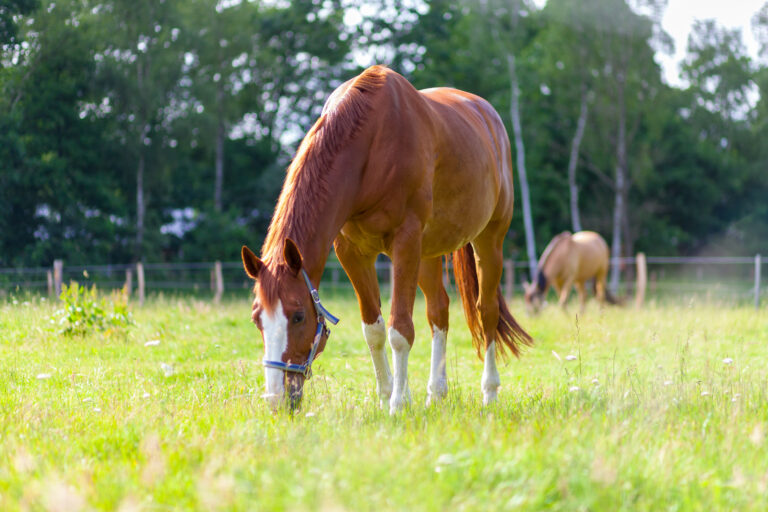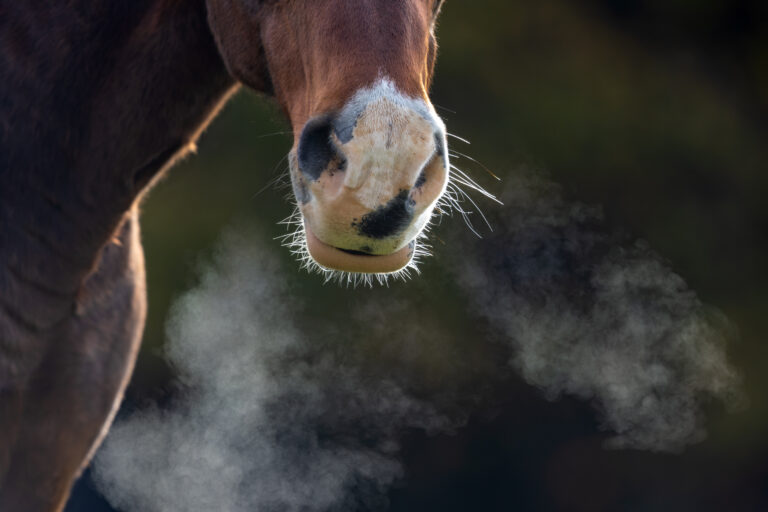
In many cases of insulin dysfunction, resting insulin might remain within normal limits, thereby necessitating the use of a dynamic test, such as an oral glycemic challenge, to measure the insulin response. This test is also used for ongoing monitoring of a horse’s response to treatment and management.
Currently, this testing is done as an oral glucose test (OGT) by administering corn syrup (Karo) or dextrose powder and then measuring insulin responses at time sequences up to 120 minutes post-consumption. While Karo syrup is not available in all parts of the world, dextrose is unpalatable and often requires administration via a nasogastric tube or mixed with chaff and food.
Carbohydrate Pellets for Glycemic Testing
However, there is variability in the test-specific cut-off values for insulin with these procedures. A study looked at using a palatable carbohydrate pellet to perform glycemic testing in horses and to evaluate its diagnostic compatibility with immunoassays that quantify insulin [De Laat, MA.; Warnken, T.; Delarocque, J.; et al. Carbohydrate pellets to assess insulin dysregulation. Journal of Veterinary Internal Medicine April 2022; DOI: 10.1111/jvim.16621].
Study Parameters
The study was performed over a year-long period in Australia, Germany, Sweden, the United Kingdom and the U.S. To provide a broad spectrum of metabolic health, 157 horses and ponies older than two years of age and of many different breed types were evaluated in the study. Supplementary feed and pasture were withheld the night before testing with the exception of hay or haylage (0.2 – 0.4 kg/100 kg body weight) to approximate a “resting” state. The morning of testing, blood samples were taken for baseline insulin, glucose and ACTH immediately before feeding 0.5 grams/kg body weight of soluble carbohydrate (containing oligosaccharides) as a pelleted form; the horses were allowed to eat for only 10 minutes. Most finished the pellets within four minutes, which is comparable to dosing syrup with a syringe. Blood samples were obtained at 60, 120 and 180 minutes following the pellet dose.
Those horses and ponies (84% or 118 individuals) that consumed more than 90% of the pellets were considered relevant subjects for metabolic responses. Body condition (BCS) and cresty neck (CNS) scores were assigned to the horses along with actual or estimated body weight. About 62% of the animals in the study were deemed overweight or obese, with variable areas of regional adiposity. About 50% had BCS > 6/9, CNS > 3/5, or a history of laminitis. Nearly 12% of those in the study were positive for PPID.
Results
Resting insulin concentration was positively correlated with the cresty neck scores but not with BCS. The metabolic responses generated by the pellets agreed with clinical indicators of EMS, such as generalized and regional adiposity. Ponies had higher blood glucose and higher insulin responses to the pellets than the horses. The timepoint for maximum blood glucose measures was most consistent at 120 minutes compared to 60 minutes after feeding the pellets. At 120 minutes, 83 ul/ml is considered diagnostic for insulin dysregulation when using the pelleted glycemic challenge as a more simplified version of the oral glucose test.









